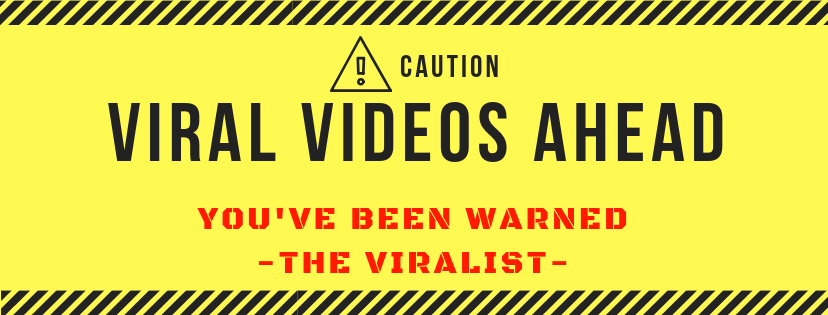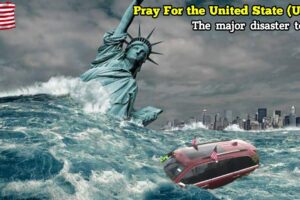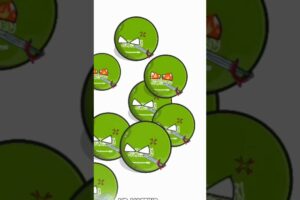
Today we’re learning about the Transatlantic Slave Trade, which brought millions of captive Africans to the Americas between the 16th and 19th centuries, with the largest number of people trafficked between 1700 and 1808. We’ll look at the ships and crews that brought enslaved people across the ocean via what was known as the Middle Passage and explore the horrific conditions that these captives endured.
Watch our videos and review your learning with the Crash Course App!
Download here for Apple Devices: https://apple.co/3d4eyZo
Download here for Android Devices: https://bit.ly/2SrDulJ
Check out Clint’s book, How the Word is Passed: https://bookshop.org/a/3859/9780316492935
Crash Course is on Patreon! You can support us directly by signing up at http://www.patreon.com/crashcourse
Thanks to the following patrons for their generous monthly contributions that help keep Crash Course free for everyone forever:
Alexis B, Rene Duedam, Burt Humburg, Aziz, Nick, DAVID MORTON HUDSON, Perry Joyce, Scott Harrison, Mark & Susan Billian, Junrong Eric Zhu, Alan Bridgeman, Jennifer Smith, Matt Curls, Tim Kwist, Jonathan Zbikowski, Jennifer Killen, Sarah & Nathan Catchings, Brandon Westmoreland, team dorsey, Trevin Beattie, Eric Koslow, Indika Siriwardena, Khaled El Shalakany, Shawn Arnold, Siobhán, Ken Penttinen, Nathan Taylor, William McGraw, Laura Damon, Andrei Krishkevich, Sam Ferguson, Eric Prestemon, Jirat, Brian Thomas Gossett, Wai Jack Sin, Ian Dundore, Jason A Saslow, Justin, Jessica Wode, Mark, Caleb Weeks
__
Want to find Crash Course elsewhere on the internet?
Facebook – http://www.facebook.com/YouTubeCrashCourse
Twitter – http://www.twitter.com/TheCrashCourse
Tumblr – http://thecrashcourse.tumblr.com
Support Crash Course on Patreon: http://patreon.com/crashcourse
CC Kids: http://www.youtube.com/crashcoursekids
SOURCES
Africans in America: The Terrible Transformation 1450-1750. PBS. https://to.pbs.org/3botPFQ
The Atlantic Slave Trade: Crash Course World History. https://youtu.be/dnV_MTFEGIY
The Interesting Narrative of the Life of Olaudah Equiano, or Gustavus Vassa, The African by Olaudah Equiano. https://bit.ly/3uKSYSN
Encyclopedia of Slave Resistance and Rebellion, Volume 1 edited by Junius P. Rodriguez https://bit.ly/3bk4Nb9
Lepore, J. (2005). A World of Possibilities: Slavery and Freedom in Dutch New Amsterdam. In I. Berlin and L. Harris (Eds.), Slavery in New York (p. 57 – 90).
Gomez, Melissa. Charleston Apologizes for City’s Role in Slave Trade. New York Times, June 19, 2018 https://nyti.ms/3fdEVyN
#crashcourse #history #slavery
source







I appreciate all these history lessons you have brought to the light,which many(especially schools)have buried or will not touch…THANK YOU!!
I knew it was this bad, but I never really assembled all the information and took it in all at once like this.
Just what I needed when I needed it most, thank you brother.
Thank you for doing this series. Chattel slavery has affected so much of all of the history of the United States that "Black American History" really should be a required course for EVERYONE who expects to attain a college degree in this country.
Thank you. Very informative.
Great video but FYI, the map of the Royal African Company included England and Wales but not Scotland nor Ireland. Just wondering if this was deliberate?
This will be your most important work.
It's so sad how little love for human life ALL people throughout history have had. I couldn't imagine what those poor people went through
I have no insight to note, but more people need to see this, so here's a comment to appease the almighty algorithm. 🌻
This man's voice is super captivating. I could listen to him all day!
Thank you Crash Course
I get why most White people can't stomach a conversation of this grotesque reality.
I value this series very highly. Thank you crash course and everyone who is a part of production for making this a reality. Black history is American history.
I love that you guys are making this series. I plan to have my daughter and son watch it. I doubt their school will be this deep.
Our history doesn’t have any funny puns 😩
This video was absolutely wonderful. Thank you so much!
Thank you so much for creating this. It is so enlightening and will help many people understand why we are where we are today.
This video is fantastic and I am so glad Crash Course is revisiting this topic with more seriousness than their previous attempt.
I wish there was more information in the video about the societies enslaved people were taken from. Who were they before they were enslaved? What culture did they have? What languages did they speak? I feel like it would humanize enslaved people more in these stories to know who loved them, who reared them, and who lost them when they were taken or sold away.
im so happy
My undergrad thesis was on this topic. I’m happy to see Crash Course began this series.
Thank you for providing a piece of history that should be highlighted and integrated into our collective knowledge. I look forward to learning along the journey
Finally a history series that will touch on very serious matters such as slavery and how Blacks in the US had lived out their lives since the early American days to now. I wonder if it will touch on recent history, which I assume it will eventually.
I salute you Mr Smith. Outstanding job.
This might have been the best and most impactful video I have ever seen on YouTube.
I am embarrassed to say that I had no Idea that Europas involvement in the trade of enslaved people was so huge.
I think I never shed a tear because of a YT video before. Thank you for this series.
It boggles me that people in America dont learn about this stuff. We learn about this in Denmark, in depth, with original historical accounts. We had 3 months of the subject "black America"
Depressing but vital.
This has to be the most important Crash Course that I have seen. It is crucial for everyone to see and understand the info that this series has to offer. I also thank the entirety of the team that has worked hard to create this series.
Clint! This is amazing!
Glad to see this topic covered – want to show it to my son, even though he may be too young for since of the content it's important to understand how the world we live in came to be.
Maybe you'll address this in coming episodes, but as an old white guy, it seems to me this first episode skipped the thing I most wonder about. WHY did slavery exist? Western Europe at the beginning of the slave trade didn't really even have serfs anymore, though it did have indentured servants. The idea of human rights was certainly not yet well developed. But, as far as I know, it didn't have slavery, and specifically it had no concept of race-based slavery (that is, the concept that while it's obviously not okay to enslave a white person, it becomes okay if the person is black). WHY, why, why, did it ever occur to that first white person, when he saw a black person, to think "I can treat this person not as a person but as property, as if he were a horse or ox"? Where did that noxious, irrational idea ever come from? Was it the first white traders arriving in Africa and being offered prisoners to buy? "If the Africans think other Africans are property, why shouldn't we"? That seems too easy. To use current slang, what ever made those first white Europeans think race-based slavery was a thing? Where did that idea come from, when they hadn't had it before?
Great video thanks.